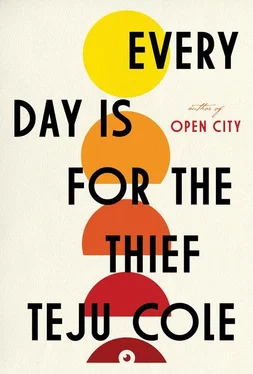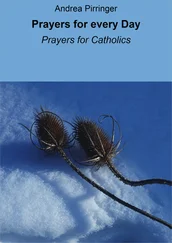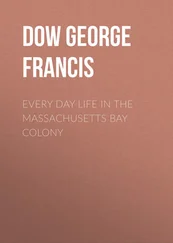Slave ships visited the river mouths of the Niger Delta, the broad network of tributaries that stretches between Lagos and Calabar, for a period of three hundred years. Here, they needed no forts as they did at Elmina in Ghana or on Goree Island in Senegal. This is because the calm waters of the delta made it possible to berth the ships for weeks or months, however long it took to fill them up with slaves. And because of this geographical peculiarity, little physical evidence remains of the long and bitter engagement. There is little for tourists to see here. According to a memorandum attached to the Report of the House of Commons Select Committee on the Slave Trade in 1848, the trade out of Africa was in the tens of thousands every year in the early nineteenth century, much higher than it had been in preceding centuries. It reached an annual peak of 135,000 in the five-year period between 1835 and 1840. At that time, several hundred ships were being loaded up each year along the Niger Delta. And this was in spite of a British ban on the trade in 1808, and a British naval presence in Nigerian waters. According to Alan Burns in his History of Nigeria , Spanish, Portuguese, and Brazilian ships often sailed under American colors until they were out of range of the British ships. This history is missing from Lagos. There is no monument to the great wound. There is no day of remembrance, no commemorative museum. There are one or two houses in Badagry that display chains and leg-irons but, beyond that, nothing. Faulkner said: “The past is never dead. It’s not even past.” But in Lagos we sleep dreamlessly, the sleep of innocents.
These are my thoughts as I visit the famous CMS (now called CSS) Bookshop on Lagos Island. From the arcade of the building that houses it, I can see area boys waving down commercial motorcycle drivers and collecting money from them. Those who resist are rough-handled. Earlier, further up the road, I had seen the police doing the same thing. Police shakedowns, as are also alleged to happen in New Orleans. Our shared sin. In the arcade, someone has spread books out on the ground, and it is as if the bookshop has spilled out of its confines. There is a copy of Samuel Johnson’s The History of the Yorubas from the Earliest Times to the Beginning of the British Protectorate for sale, but I find it steep at almost three thousand naira. Samuel Johnson, in spite of his name, was Yoruba. He was a peace activist, a priest of the Anglican Church, and a great historian. He wrote his masterly text in 1897. There has not been to date another work of comparable scope by a Yoruba historian.

The interior of the shop is vaguely familiar from my visits here as a schoolboy, when it was the leading bookseller in the city. I used to come here with my mother when there was something we couldn’t find at the University Bookshop in Akoka or at the Abiola Bookshop in Yaba. I don’t remember the offerings being as limited as what I see now: the books available for sale are restricted to a few categories. Many of the volumes are dusty and damaged at the edges. There are primary and secondary school textbooks and there are assorted volumes on computer programming, on accounting, and on law. The largest section of all is devoted to “inspirational” and Christian books. While I’m browsing, a woman walks in and brusquely asks the attendant where she can find Bibles. She is directed to a well-stocked section, the only section of the shop in which there is more than one customer. The titles of the books are reiterations of a few themes: how to make money quickly by adopting certain simple principles, how to discover God’s plan for your life, how to live a healthy, wealthy, and victorious life according to the precepts of the Pentecostal church.
The shelf given to general fiction is small. Other than a few tattered copies of plays by Shakespeare and Soyinka, all that is available is a handful of recently published novels, among them Chimamanda Ngozi Adichie’s Purple Hibiscus and Sefi Atta’s Everything Good Will Come . These two are first novels by young Nigerian women based in the United States, and they are here most likely because they have an energetic young Nigerian publisher behind them. There is also a single copy of Dan Brown’s ubiquitous book. And I see a stack of books by James Hadley Chase, a minor imitator of Ian Fleming’s, who was inexplicably popular in Nigeria when I was growing up and apparently still is. But where are the Nigeria-based Nigerian writers? Where is the selection of international literary fiction? The reader I saw on the danfo had surely not bought her book here. Poets, too, are notable by their complete absence.
There is an information desk at the back of the shop. I go there with the idea that I might ask some questions. The woman standing behind the high desk is slumped over, like a large mammal felled by a single shot. But she is not dead, only sleeping, the same as the woman I saw at the museum. A standing fan slowly shakes its large head from left to right to left. It covers her in breezes. What I am looking for, what Tranströmer described as a moving spot of sun, is somewhere in the city. But it is not easy to find, not here where one has to forget about yesterday.
Why is history uncontested here? There is no sight of that dispute over words, that battle over versions of stories that marks the creative inner life of a society. Where are the contradictory voices? I step out of the shop into the midday glare. All around me the unaware forest of flickering faces is visible. The area boys are still hard at work, but I imagine they will soon break for lunch. The past is not even past.
I left under a cloud. My departure was sudden and, to my family, a complete surprise. Only one of my father’s cousins, from whom I had borrowed some of the money for the ticket, had had an inkling about what I planned to do. I had recently finished school at NMS, the military secondary school I attended for six years. I made up an excuse to stay behind after that final semester, while I put my plan into action. Five years previously, I had darkened a doorway in our house in Ikeja and watched my father lie in bed, weak from tuberculosis.
My father’s death opened up the final cavern between me and my mother. The deprivations of life at boarding school became my refuge. It was better to be there with those military brats, to struggle for survival in that Darwinian environment, than to sit in a large and silent house with my mother and her oppressive grief. Our relationship, never good to start with, got markedly worse in those years. I spent long vacations with my uncles and aunts and, by the time I entered my final year of secondary school, I knew I had to leave Nigeria. When she got my letter from New York, in August 1992, she wrote me back. Her letter was full of alarm and questions. Why have I done this thing? When do I plan to return? Why do I act without thinking through the consequences? I read it once and ripped it up. I never wrote her back. I needed to restart my life on my own terms alone. And that has been the limit of our communication since then, a commitment to silence that, even now, I am surprised I was able to keep up. My communication with those who remained at home was almost as bad, not out of any ill feeling, but from the need to make the break complete. There were also the pressures of remaking my life in the new place. Uncle Tunde wrote to tell me my mother had left Nigeria not long after I did, that she had moved to California. He included the information on how to find her if I wished to. All my time in the United States has been on the East Coast and in the Midwest: New York, Wisconsin, and, for the past several years, back in New York. She, as far as I know, is still on the West Coast. We will not meet accidentally.
Читать дальше













